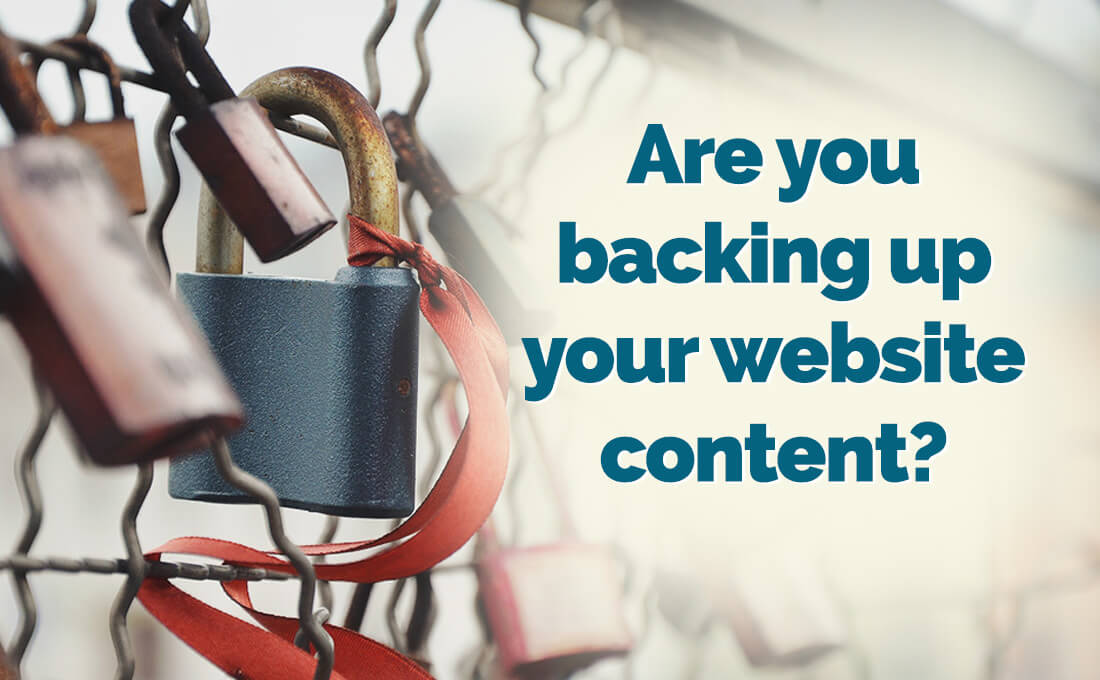
Do you have a backup solution in place for your nonprofit website? If your website suddenly disappears, would you have a copy of all your content? There are many reasons this could happen, and if it does, you need to have a strategy for handling it. The first part of that strategy is having a system in place that creates backups of all your website data on a regular basis.
In mid 2017, Ransom where attacks were all over the media. Huge multinational companies were having their websites "hacked" and held for ransom: Pay us and we'll give you your content back. This kind of attack is not necessarily perpetrated by a person actively targeting an organization. It could be a "bot" that is attacking websites at random.
A much more likely scenario is that your site is infected with malware. Typically, this is what actually happens when people claim they've been "hacked." Again, rather than a real person targeting you, it's more like a person created a program that finds vulnerabilities in websites, infects them, then does something nasty to them. It may take the whole site offline; or it may replace your webpages with an ad or an offensive message; or it may corrupt all your data!
Your website is stored on a server - a computer owned by your website host. Many nonprofits subscribe to a "shared hosting" package. That means that yours is not the only website on the server. You're sharing that space with 20 or more other websites owned by the host company's other customers.
Normally this isn't an issue, but when one of those other sites is compromised, it can affect your site as well. One of my clients had their website taken offline twice because someone else's website was infected by a malware attack, and both sites happened to share the same server. This is especially common with websites powered by WordPress - Yes, I'm afraid the most popular CMS in the world is also the most vulnerable.
None of these scenarios are good. Solving the problem depends on the particulars of what happened, but in any case, having all your website content backed up somewhere will help to put your mind at ease, especially if you have data from members, customers, or donors.
Some Web hosts offer regular backups with their hosting plans. Be careful though - there is often fine print in hosting agreements stating that in the event of a data loss, the host is not obligated to provide you with backups. Ask your Web host to be sure.
Depending on the CMS you're using, there may be a plugin or add-on available that allows you to back up your data. Be sure to get one that offers backups of both your files and your database, and automated backup scheduling so you don't have to worry about it. You'll also want to be mindful of where they're being stored and how many backup copies are saved. You don't want to hit your Web space limit due to having too many backup files.
Another option is to subscribe to a third-party backup service like CodeGuard. These services offer a monthly or yearly fee and provide lots of secure options for backing up your content, often off-site so the backups don't count against your Web storage.
There are things you can do to protect yourself from getting into this situation in the first place. For one, you'll be in a much safer position if you have a secure content management system. Whichever CMS you use, be sure to set it up so that any vulnerabilities are protected in accordance with best practices. And don't forget to secure your site with SSL.
You should also be monitoring activity on your site to make sure there aren't any spam member accounts being created; once a spammer has the ability to log into your site, he can do a lot of damage.
If your content is worth promoting to your audience, it's worth backing up regularly. Don't wait until you have an emergency to put your backup solution in place. And if you need help setting any of this up, get in touch!
Have I made you consider a viewpoint you hadn't before? Or do you and I think alike? Either way, maybe we should work together?